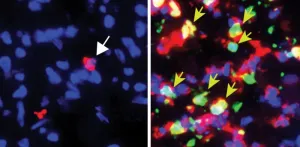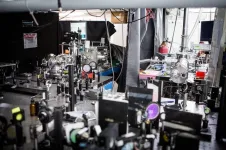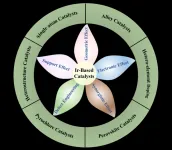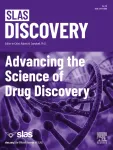(Press-News.org) HOUSTON ― A novel approach to administer intrathecal (IT) immunotherapy (directly into the spinal fluid) and intravenous (IV) immunotherapy was safe and improved survival in a subset of patients with leptomeningeal disease (LMD) from metastatic melanoma, according to interim analyses of a Phase I/Ib trial led by researchers at The University of Texas MD Anderson Cancer Center.
The study, published today in Nature Medicine, represents the first-in-human trial of concurrent IT and IV nivolumab (anti-PD-1) in melanoma patients with LMD. Across 25 patients, the median overall survival (OS) was 4.9 months, with OS rates of 44% at 26 weeks and 26% at 52 weeks. Four patients survived to 74, 115, 136 and 143 weeks after their first IT dose, which is significantly longer than expected.
“This represents a major path forward for our patients, as there is a crucial unmet clinical need for better treatments for patients with LMD,” said corresponding author Isabella Glitza Oliva, M.D., Ph.D., associate professor of Melanoma Medical Oncology. “We are encouraged by these preliminary results for a disease that has been notoriously difficult to study due to its highly aggressive nature. This approach is safe, and we’re seeing a small subset of our patients who have had outstanding results, so we hope to learn from each and every one of them.”
Leptomeningeal disease is a complication of cancer that occurs when cancer cells from primary tumors migrate into the cerebrospinal fluid (CSF) and leptomeninges, the outer lining of the brain and spinal cord. These cells can quickly spread throughout the CSF and cause a wide variety of neurological symptoms. Roughly 10% of patients with stage IV melanoma will be diagnosed with LMD, which also commonly derives from metastatic lung cancer and breast cancer.
There is no cure for LMD, but treatments such as targeted therapy and immunotherapy may improve quality of life. While immune checkpoint inhibitors are beneficial in patients with metastatic melanoma, little is known about their potential use for treating LMD.
Intrathecal administration has been studied in other settings. A previous proof-of-concept study by Glitza Oliva and colleagues at MD Anderson demonstrated that IT administration of interleukin-2 in patients with LMD had encouraging results but was associated with serious side effects. This new study showed that injecting nivolumab directly into the spinal fluid increases its concentration within the CSF, since these antibodies cannot otherwise easily penetrate the blood-brain barrier.
The current trial enrolled 25 patients with a median age of 43 and all but two had received prior systemic therapy, including immune checkpoint inhibitors (84%), BRAF/MEK inhibitors (64%) and chemotherapy (12%). The dose-expansion cohort evaluated four doses of IT nivolumab concurrent with a flat dose of IV nivolumab.
The drug was well tolerated at the highest IT nivolumab dose, with only mild grade 1 or 2 side effects and no dose-limiting toxicities. The most common treatment-related adverse events were nausea, dizziness and vomiting.
“Until recently there have been limited resources to develop clinical trials in this space, but we owe it to patients with very challenging diseases to push the unknown and to advocate for them when they don’t have many options,” Glitza Oliva said. “We are optimistic that these results, along with further clinical trials, will lead us to a better understanding of LMD and, ultimately, more effective ways of helping our patients.”
Recently, the study completed enrollment for the dose-expansion cohort; analysis is underway to provide an opportunity for further insights. Ongoing research will seek to identify biomarkers that may predict patients most likely to benefit from this treatment approach.
This work was supported by Bristol-Myers Squibb Foundation, Inc. Additional funding was provided by the National Cancer Institute (1P50CA221703-01A1), the Dr. Miriam and Sheldon G. Adelson Medical Research Foundation, and MD Anderson’s Moon Shots Program®. A full list of collaborating authors and their disclosures can be found with the full paper here.
- 30 -
END
White blood cells called neutrophils have an unappreciated role in eradicating solid tumors, according to a surprise discovery from a team led by Weill Cornell Medicine scientists.
In the study, published March 30 in Cell, the researchers investigated how a T cell-based immunotherapy was able to destroy melanoma tumors even though many of the tumor cells lacked the markers or “antigens” targeted by the T cells. They found that the T cells, in attacking the tumors, activated a swarm of neutrophils—which in turn killed the tumor cells that the T cells couldn’t ...
INDIANAPOLIS – The pandemic has highlighted the importance of increasing the flow of information on infectious diseases from electronic health records (EHRs) to public health agencies. Less attention has been paid to the value of EHR data for chronic disease surveillance.
At the HIMSS (Healthcare Information and Management Systems Society) Global Health Conference & Exhibition (HIMSS23), Brian Dixon, PhD, MPA, of Regenstrief Institute and Indiana University Richard M. Fairbanks School of Public Health and Lorna Thorpe, PhD, MPH, of NYU Grossman School of Medicine, will ...
Exploiting dark autoionizing states for enhancing the extreme ultraviolet laser power
A research team unravels a new optical phenomenon involving dark autoionizing states, enhancing the power of an extreme-ultraviolet laser.
An international research team led by Professors Tsuneyuki Ozaki and François Légaré at the Institut national de la recherche scientifique (INRS), has developed a unique method to enhance the power of a laser source emitting extreme ultraviolet light pulses. The underlying mechanism of the newly observed phenomenon involves the ...
Hydrogen production powered by wind and solar energy is still too expensive if it is to play a role in the clean transition via energy storage and to help decarbonize hard-to-electrify sectors. Much effort in reducing its cost focuses on enhancing production efficiency by improving the performance of iridium-based catalysts that can speed up the oxygen-related part of the electrochemical reaction involved in splitting water into its component parts, hydrogen and oxygen. A new review of the state of the field discusses its recent progress and challenges and identifies research gaps that need to be filled before such ...
(WASHINGTON, March 30, 2023) – Chimeric antigen receptor T-cell (CAR-T) therapy has transformed cancer treatment, yet relatively few studies have investigated the impact of the therapy on longitudinal patient quality of life – an aspect of care that often suffers from receiving traditional intensive cancer medications, such as chemotherapy. A new study published in Blood Advances demonstrates that some effective cancer treatments do improve quality of life, revealing that patients with blood cancers experienced ...
PHILADELPHIA – The American Association for Cancer Research (AACR) will award E. John Wherry, PhD, with the 2023 AACR-Cancer Research Institute (CRI) Lloyd J. Old Award in Cancer Immunology during the AACR Annual Meeting 2023, April 14-19 at the Orange County Convention Center in Orlando, Florida.
Wherry is chair of the Department of Systems Pharmacology and Translational Therapeutics, director of the Institute for Immunology, and founding director of the Immune Health Project in the Perelman School of Medicine at the University of Pennsylvania. He is being honored for ...
LOS ANGELES — A newly published study paves the way for some patients with testicular cancer to avoid chemotherapy and radiation.
Seminoma is a slow-growing form of testicular cancer that if untreated, typically metastasizes (spreads) to lymph nodes in an area behind the abdomen lining called the retroperitoneum. The standard treatment for patients at this stage is chemotherapy and radiation to shrink and kill the cancerous lymph nodes.
While effective, chemotherapy and radiation are associated with long-term side effects, such as cardiovascular disease and secondary cancers, that adversely affect a patient’s quality of life.
Now, however, the results of a multi-institutional ...
Bratislava, Slovakia, March 21, 2023
BGI Genomics is pleased to announce the launch of COLOTECTTM 1.0 in Slovakia, in collaboration with its local partner, Zentya. Zentya is a Slovak-based healthcare solution provider that is passionate about providing patients with the latest technology in the field of genetic screening, aiming to help identify and facilitate timely treatments of genetic diseases.
COLOTECTTM 1.0 is one of the first-ever fecal DNA tests for colorectal cancer that is available in the country. It is a non-invasive fecal DNA test developed by BGI Genomics for detecting ...
PULLMAN, Wash. — Facebook users were more likely to read fake news about the 2020 U.S. presidential election than users of Twitter and other social media websites, a Washington State University-led analysis found.
The study in Government Information Quarterly indicates that fake news consumption and political alignment were the primary forces driving doubt about the integrity of the vote counting process – and surprisingly not the method used to cast votes. The researchers also found that individuals who got ...
Oak Brook, IL – The March special issue of SLAS Discovery deviates from its traditional focus on assay technology, disease area or molecular target to introduce and explore protocol articles – the newly accepted article type for outlining detailed scientific methods and procedures. The six protocol articles featured in this month’s collection cover a range of topics such as 3D imaging, cancer treatments and methods of high-throughput screening.
By publishing protocols, SLAS underscores the importance of transparency and rigor ...







